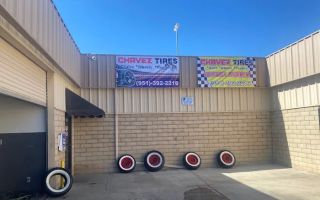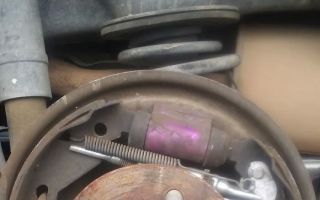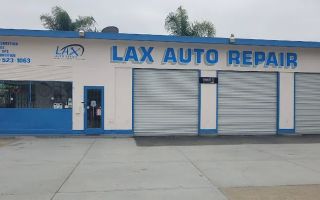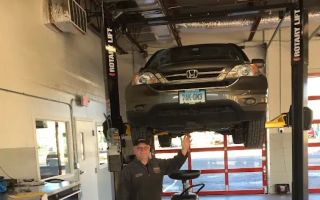Why Your Car is Shaking and How to Fix It
Have you ever been driving down the road, minding your own business, when suddenly your car starts shaking? It's a nerve-wracking experience, and your first instinct might be to pull over and inspect the car immediately. I've been there before, and it's a scary feeling not knowing what’s causing the shaking. After all, your car is supposed to be your safe space, not something that feels like it’s about to fall apart. Over the years, I've learned that car shakes are more common than you might think, and the good news is that there are several reasons why it happens, as well as a few fixes you can do yourself or with the help of a mechanic. Here’s everything I’ve learned about why your car is shaking and how to fix it.
1. Unbalanced or Misaligned Tires
One of the most common causes of car shaking is an issue with the tires. If your tires are unbalanced or misaligned, they can cause your vehicle to vibrate, especially at higher speeds. I learned this the hard way when I noticed my car started shaking noticeably after hitting 50 mph. The shaking wasn’t just a little wobble; it was enough to make me question whether I had a flat tire. After taking my car to a mechanic, I found out that one of my tires had become slightly misaligned. When a tire is misaligned or out of balance, it can cause uneven wear, leading to vibrations throughout the car.
The fix for this issue is fairly simple: getting your tires balanced and aligned. Most auto shops offer this service, and it doesn’t take long. Tire balancing involves adjusting the weight distribution of your tires to ensure that they spin evenly. If your tires are misaligned, the mechanic will adjust the angles of the wheels to ensure they are in proper alignment. Keeping your tires balanced and aligned can prevent unnecessary shaking and extend the life of your tires.
2. Worn Out Brake Pads
If you notice shaking or vibrations when you apply the brakes, it could be an issue with the brake pads. I had this happen a few months ago. Every time I stepped on the brake pedal, my steering wheel would shake, and I could feel the vibrations in my feet. It was an uncomfortable feeling, and it made me nervous every time I had to stop. When I took my car in for an inspection, the mechanic discovered that the brake pads were worn down significantly, and the brake rotors were warped. This combination caused the car to shake when braking.
Worn-out brake pads or warped rotors can cause uneven friction, leading to the vibrations I experienced. The solution is pretty straightforward: replacing the brake pads and resurfacing or replacing the rotors. Regular brake maintenance is important, not just for smooth driving but also for your safety. If your car shakes while braking, it’s crucial to address the issue as soon as possible. Don’t wait until it gets worse, as worn brakes can lead to further damage to the brake system.
3. Engine Problems
Sometimes, the shaking might be caused by issues under the hood. It could be something as simple as a dirty air filter, or it could be a more serious problem like misfiring spark plugs or a failing fuel injector. I once noticed my car shaking during idle and acceleration. At first, I thought it was just a fluke, but it kept happening. After taking my car to the mechanic, I found out that one of my spark plugs was misfiring. When a spark plug isn’t working properly, it can cause uneven engine performance, which leads to vibrations that can be felt throughout the car.
If your car is shaking while accelerating or idling, it could be due to engine problems. Common causes include faulty spark plugs, a clogged fuel injector, or a malfunctioning sensor. If you suspect an engine issue, it’s a good idea to get it checked by a professional mechanic who can diagnose the problem accurately. In some cases, a simple tune-up or replacing the spark plugs can fix the issue and stop the shaking.
4. Suspension Issues
Your car’s suspension system is responsible for maintaining smooth driving and handling. If your suspension is worn out, it can lead to poor vehicle control, uneven tire wear, and noticeable shaking or vibration. I remember when my shocks were nearing the end of their life, and every time I hit a bump or pothole, the car felt like it was bouncing excessively. It was not just uncomfortable; it felt unsafe at times, especially on rough roads.
Shaking or bouncing after hitting bumps could indicate that your shocks or struts are failing. These components are designed to absorb shock and maintain a smooth ride. If they wear out, you’ll feel the difference, and it can lead to vibrations when driving, particularly on uneven surfaces. If you think your suspension system might be the cause of the shaking, it’s best to have a mechanic inspect the shocks, struts, and other suspension components. Replacing worn suspension parts is crucial for safe and comfortable driving.
5. Faulty CV Joints or Axles
If the shaking happens when you’re turning, it might be a sign that your car’s CV (constant velocity) joints or axles are damaged. I experienced this one day while turning left at a light. My car began shaking violently, and the steering wheel became hard to control. It turned out that one of my CV joints was damaged, which caused the shaking when turning.
CV joints are critical parts of your car’s drivetrain, allowing the wheels to move in sync with the rest of the vehicle. If these joints or the axles they’re attached to wear out or become damaged, it can lead to excessive shaking when turning or accelerating. In this case, replacing the damaged CV joints or axles is necessary to prevent further damage and restore smooth driving. If you’re unsure whether this is the issue, a trusted mechanic can check the drivetrain for you.
6. Worn Out Engine Mounts
Engine mounts are responsible for holding your car’s engine in place and reducing vibrations. If these mounts wear out, you may feel excessive shaking, especially when accelerating or shifting gears. I had this happen when I was driving on the highway, and I noticed that the car started shaking more and more as I sped up. It felt like the engine was moving inside the engine bay. After a thorough inspection, the mechanic confirmed that the engine mounts were worn out, which was causing the vibrations.
Replacing worn engine mounts is the solution. This repair may seem costly, but it’s important for the overall performance and safety of your vehicle. If you’re experiencing shaking and suspect the engine mounts are the issue, don’t hesitate to visit a mechanic for an inspection.
What to Do if Your Car is Shaking
Once you’ve identified the cause of the shaking, the next step is to take action. In some cases, like with tire balancing or brake pad replacement, you can address the issue yourself if you have the skills and tools. However, for more complex issues such as engine problems, suspension issues, or faulty CV joints, it’s best to consult a professional mechanic.
If you’re unsure what’s causing the shaking, or if the problem persists even after you’ve addressed potential causes, it’s a good idea to get a full diagnostic at a reputable auto shop. In some cases, you might need to get your car towed to a mechanic if the shaking becomes dangerous. If that happens, I highly recommend a trusted towing service like Rescue & Towing. They provide fast and reliable towing services, ensuring your car gets the attention it needs as soon as possible.

























